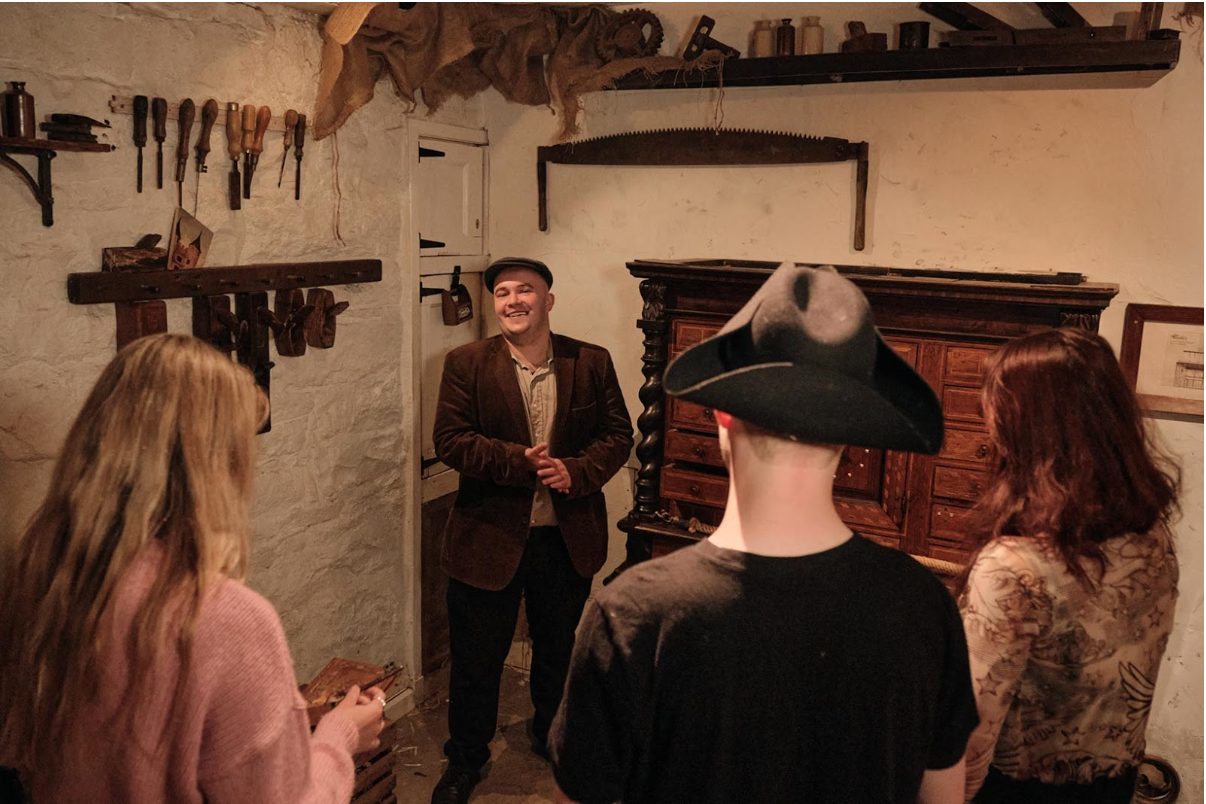
Escape Rooms increasingly used for Historical Storytelling
Escape rooms have long been a favourite for groups seeing a fun challenge, but in recent years the format has moved far beyond simple puzzle games. Increasingly, historical and cultural attractions are using the format of escape rooms to tell powerful, site-specific stories in ways that are immersive, interactive, and highly memorable, thereby attracting new audiences.
The Core of the Escape Room Experience
At their core, escape rooms are group experiences built around the idea of problem-solving to progress a narrative. Traditionally, the goal was straightforward: to “escape the room” by cracking codes and solving puzzles against the clock. But the format’s versatility means it can be applied to almost any theme. When applied to history, it allows visitors to step directly into the past, experiencing stories and revealing information in a far more engaging way than traditional exhibits could ever achieve.
Case Study: Edinburgh’s Darker Past
One example is Escape The Past Escape Rooms in Edinburgh, which has built its entire business around the city’s darker history. Instead of simply reading about grave robbery or other grizzly deeds, players find themselves in the basement study of a 19th-century anatomist, piecing together the secrets of Edinburgh’s notorious body-snatching past. By combining live actor storytelling, engaging puzzles, and an authentic atmosphere, Escape The Past brings history to life while also standing out from more generic escape room competitors.
Heritage Sites Reimagined
Heritage sites are also adopting the format to reinvigorate their own visitor experiences. Inveraray Jail, for instance, recently opened an escape room that transports participants into the world of an 1850s debtors’ prison. Visitors don’t just learn about the hardships of the time but (for an hour at least!) they live them, in a way that piques interest and sparks curiosity. For historic venues, escape games provide a fresh reason to visit and a dynamic way to capture the imagination of younger audiences, who increasingly expect interaction over passive displays.
Pop-Up Escape Room Experiences
Not every historical escape room is a permanent fixture. Many venues are experimenting with pop-up escape game experiences to generate publicity, attract repeat visitors, and offer something new without a long-term investment. Discovery Point in Dundee trialled this approach with its Antarctic Mysteries game, where players stepped into the roles of the crew aboard the famous RRS Discovery. For a limited time, visitors can actively participate in the challenges of an Antarctic expedition, rather than simply hearing tales or viewing artefacts behind glass.
Why Escape Rooms Work for History
The appeal of these experiences lies in their ability to combine learning with play. History becomes tangible, emotional, and memorable when visitors are asked to solve the kinds of problems that real people once faced. Escape rooms also encourage teamwork, discussion, and a sense of achievement, all of which deepen the connection to the story being told.
A Social, Multi-Generational Experience
Part of the enduring appeal of escape games lies in their ability to blend entertainment, challenge, and social connection into one experience. Unlike traditional museum exhibits or guided tours, escape rooms place participants at the centre of the story, making them active agents rather than passive observers.
They also cater to a wide range of audiences: multi-generational families looking for a fun outing all can take part in, groups of friends seeking adventure, tourists wanting a memorable way to explore a new city, and even corporate teams interested in problem-solving and collaboration.
The time-limited format adds excitement, while the shared experience encourages laughter, teamwork, and conversation long after the game ends. For cultural attractions, this means visitors leave not only entertained but also with a stronger, more personal connection to the history they’ve uncovered.
The Future of Historical Escape Rooms
As demand for novel and immersive experiences continues to grow, the escape room format is likely to spread further into other areas of history and culture. They can serve as the backbone of a dedicated business, an innovative add-on for heritage sites, or a short-term pop-up to boost marketing. Whatever the format, one thing is clear: escape rooms are proving to be a powerful tool for helping audiences not just learn about the past but truly experience it.



 Bitcoin
Bitcoin  Ethereum
Ethereum  Tether
Tether  XRP
XRP  USDC
USDC  TRON
TRON  Lido Staked Ether
Lido Staked Ether  Cardano
Cardano  Avalanche
Avalanche  Toncoin
Toncoin  Solana
Solana